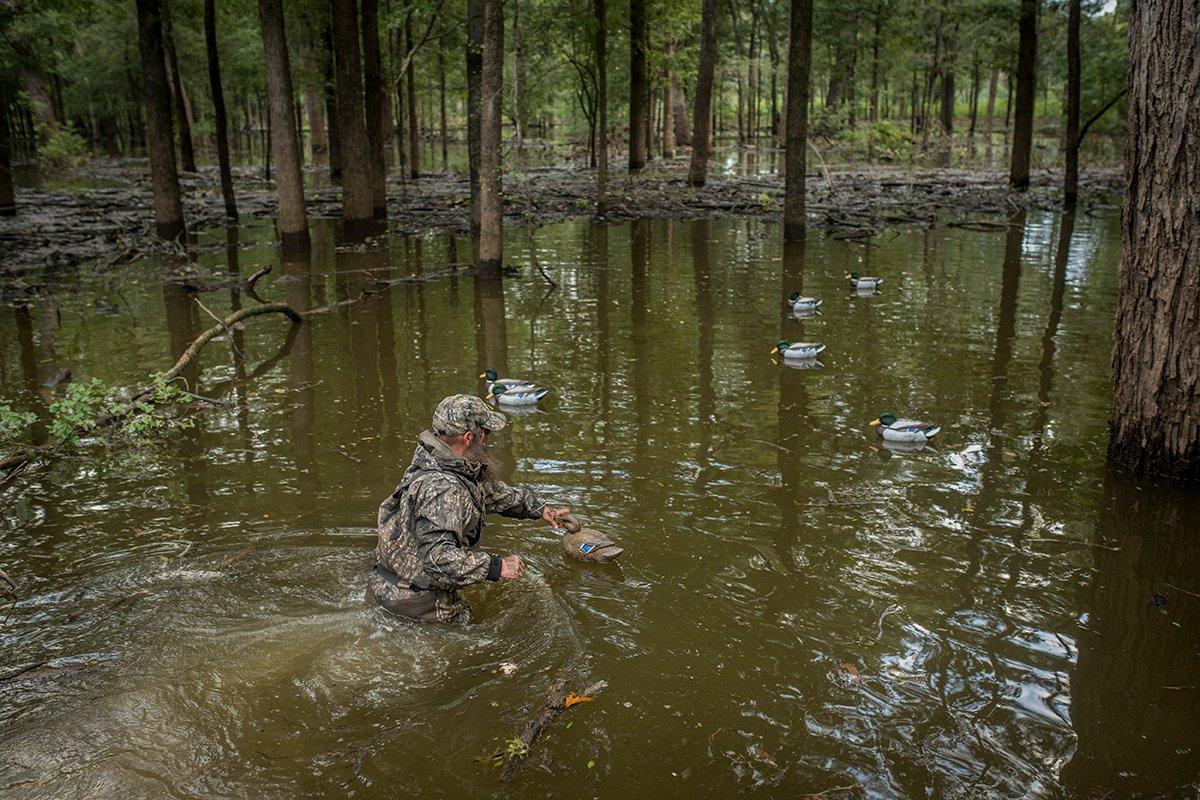A Realtree Pro Reveals Why Public Ground Might Surprise You
So you think hunting for ducks and geese on public-access areas sucks because those spots are overhunted and overcrowded, and you end up in calling duels with sky-busting neighboring hunters who are always out of their blind peeing when birds are trying to come in?
Let me tell you why you're wrong.
Or more accurately, let Realtree pro-staffer Ryan Breish, one of the producers of Fowled Reality, tell you why you're wrong.
Public Perception
Your perception is one of the reasons public areas can provide good hunting.
There are a lot of times public areas are avoided because other hunters assume they are over-hunted or that there will be other people hunting there and they don't want the competition, Breish said. There are a lot of times they're overlooked, and in reality, nobody's hunting them. Breish said he's encountered that, when he and his crew discovered a promising public area but think that if they found it, other hunters must also know about it, so everyone passes it up.
Then come to find out a couple of days later, nobody's been there yet, he said. Everybody thought the same thing and stayed away, and it could have been a really good hunt.
Uneasy Access
Some of the best public hunting spots are the areas that are not easily accessed, Breish said.
If it takes a lot of work to access and hunt, many hunters will stay clear from it.
Not many people will go through the effort it takes to get to some of the places that are off the beaten path, he said. It might take a little bit more work, but a lot of times, it's worth it because there are good areas other hunters overlook.
Better Days
Many public-land hunters work throughout the week and only have the weekend to hunt. Therefore, if you avoid weekends and hunt weekdays, you might be the only one there. Plus, some public hunting areas are managed to minimize hunting pressure. In Michigan (Breish lives about 25 miles south of Detroit, where the Detroit River empties into Lake Erie), some managed waterfowl areas are open to hunting only on Saturdays and Wednesdays. He said ducks and geese are attracted to such places of (mostly) refuge and rest.
Planned for Success
Likewise, most public areas are planned, sited, developed and managed for success. They are often located in prime habitat areas and at critical areas along the flyways, with food and water sources. And wildlife managers want hunters to be successful, proving the worth of management techniques. Such areas, Breish said, give hunters a higher success rate; a higher level of opportunity.
Seclusion Exclusion
Here's a Breish tip: Don't overlook the small spots, he said. A lot of times, people think a certain area might be too small to hunt, or maybe there's not enough water — maybe there's only a couple of inches of water instead of knee-deep. Maybe there's no food source, no crop. There are a lot of different reasons people avoid some of the smaller secluded areas, and those tend to be some of the better areas.
Just because such spots are smaller and everybody views them that way doesn't mean ducks won't find them. When they do, they'll keep coming back, he said.
Breish said his crew typically hunts five or six guys, but in small spots, they scale it down, maybe sending two hunters and one cameraman, taking turns as the day progresses.
Tip within a tip: onX, the hunting app that makes satellite imagery readily available, makes it easy to virtually scout for small or secluded areas.
onX has changed the way we hunt, Breish said. Now we're using satellite imagery to find the best possible routes; to see what it's going to look like so we go into a spot in the morning with a pretty good idea of what it looks like.
It also provides names of property owners, which could be critical for finding other places to hunt or even easier access across private property to public hunting areas, Breish said.
Adapt to It
Another Breish tip: The biggest thing when you hunt public areas is to learn the ducks and geese, he said. A lot of times, it doesn't take the 10 dozen decoys that you would normally put out. Sometimes, it takes only a half dozen, and your calling techniques are going to vary as well.
Ducks and geese on public areas might be pressured and might have been hunted before, so, You have to be able to adapt to what they want to see and what they want to hear to make it work, Breish said.
Attitude Latitude
Be realistic, and don't be a jerk.
If you hunt public ground, you have to go at it with the attitude that there's a really, really good chance you're not going to be the only one there, Breish said.
We've all heard the story of someone spending the night in the parking lot or arriving at 2 a.m. to claim their spot and set out decoys, and are ready to roll when, about 20 minutes before shooting light, someone else shows up and sets out decoys nearby.
So you either have to have a backup plan or a way to deal with the situation, he said. A lot of times, we've hunted public land and have had people come in on us, and what we do is go over and talk to them and invite them to hunt with us.
That way, he said, you aren't competing with each other and can all have a successful hunt. Competing against one another doesn't work, Breish said. But by working together, Nobody leaves with a bad attitude unless they came with one.
Click here for more Realtree waterfowl hunting content. And check us out on Facebook.








